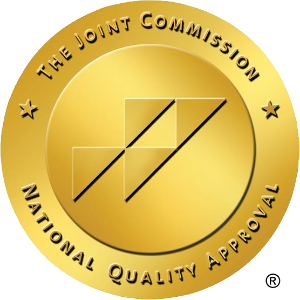Last week we looked into how the natural transition of fall can be a great time for people to start their journey of recovery. The changing leaves, resetting schedules, and more moderate temperatures can all help people begin to change habits and change their life for the better.
Unfortunately this same time period can be very difficult for people already living a life of recovery. While nature gets slightly prettier for a short time, the shorter days, worse weather, and evidence of plants dying for the year can put people in a negative mindset. This negative mindset can make maintaining sobriety more difficult and can even lead to relapse.
To compound these issues, fall presents plenty of other challenges that you need to prepare for to ensure you can maintain your sobriety. The start of football season will present you with plenty of parties to attend, halloween is a substance heavy holiday, and the looming winter holidays provide stress and the presence of substances, a tricky combination.
Why Do I Feel Down?
Seasonal Affective Disorder (SAD) is an issue that many people deal with in the fall as the weather starts to change. To overly simplify things, this issue is caused by the shortened days, limited sunlight, and longer periods of darkness.
Many people find themselves feeling varying degrees of increased depression and the side effects that come with it. More specifically, seasonal depression can cause you to find less joy in activities you previously enjoyed, lead you to eat more carbohydrates, increase your restless activity, and even cause suicidal thoughts.
Regardless of which of these negative effects you experience, they will challenge you and your sobriety if you are not prepared. To fight back against SAD and the feelings that go along with it you should try the following things
Fighting To Feel Better
Fighting back against these feelings from a physical, mental, social, and emotional standpoint will allow you to feel better than ever and may even enable you to enjoy the fall season more than ever before.
Physical
As we just mentioned, the changing seasons can lead to poor eating and limited energy. To fight back against these negative effects you must apply a little extra energy to your workouts and dieting. Your workout schedule and diet are already things you should be paying attention to on your journey to recovery so this shouldn’t be too hard.
When you start to feel burnt out, schedule a fun and relaxing yoga class or plan a hike with some friends to break up your workout routine to remind yourself that moving your body and working hard is a fun experience. This positive reinforcement will make it easier to get up and grind at the gym, go for your morning run, or do whatever it is you do to stay active.
Additionally, your diet will start to sway towards too many carbohydrates during this period of time. To fight this you should take a cooking class, eat out once in a while, or make a traditional fall treat to show yourself that autumn can be enjoyed and even looked forward to, not dreaded.
Mental
Sticking to your diet and workout schedule will actually help you jumpstart your mental battle as well. Sticking to those schedules causes positive reinforcement in your head. This will allow you to start feeling better on a daily basis.
To further enhance your mental state and further prevent a relapse, you need to focus on the positive aspects of the season. Rather than focusing on the long winter that is looming over the horizon, you need to focus on the positives of the fall. The beauty of the season, the pleasant weather, and the changing schedules of people around you are all positive aspects you can reinforce your thinking with.
Social
While the return of football season and the parties that go along with it can cause tricky social situations for people in recovery, it is still vital to battle SAD with good social habits. Seeing your friends, family, and support systems can be extremely beneficial in this dark season. Maintaining these relationships will enable you to remember that everyone is going through this period of transition and you are not alone.
If spending time in person with some friends feels too risky due to their personal habits then it can still be beneficial just to send them a text message, set up a video chat, or play some online video games with them. Any amount of social normalcy will make the season feel way less daunting.
Emotional
Your emotional state is heavily affected by your mental and physical condition. If you have stuck to your workout schedule, maintained your diet, and reinforced your mind with positive thoughts then you are off to a good start.
To build on this emotional foundation it can be extremely beneficial to make time for the things you like to do the most. The beauty of emotional health is just how personal it is. It does not matter what other people think, it only matters that you make time to do exactly what you want to do. Whether that activity is hiking in the changing leaves, drinking tea in the tub, or taking a nap outside on one of the last sunny days, just make sure to find time to enjoy yourself.
Fall and What It Means To People In Recovery
Fall can mean different things for different people, but all too often the changing weather can lead to seasonal affective disorder. This disorder can cause a problem for everyone everywhere, but SAD can be much more difficult for people going through a life of recovery.
To fight back against these feelings you need to remain diligent in your workout routine, maintain a healthy diet, prioritize your mental health, make an effort socially, and make time to do your favorite things.
If you follow these tips and work hard you may even find yourself enjoying the beauty of fall in no time.





